Tennessee’s mild temperature and several gorgeous lakes make it easy to enjoy the outdoors. Since the state has both large and small bodies of water, fishing is a particularly popular sport there. Anglers can catch bass, walleye, sunfish, crappie, and trout there.
Families flock to lakeside campgrounds in the sweltering summer months when the kids are off from school for the year, but spring and fall are also popular times to camp out. Even a winter trip at the lakes is doable because state parks provide RV campsites and cottage rentals throughout the colder months.
You may find the best lakes in Tennessee to fulfill your vacation needs whenever you visit, whether they involve relaxing on a sandy beach, hiring a pontoon boat, or trekking through forested lakefront trails. Check out 11 of best lakes in Tennessee below.
Norris Lake
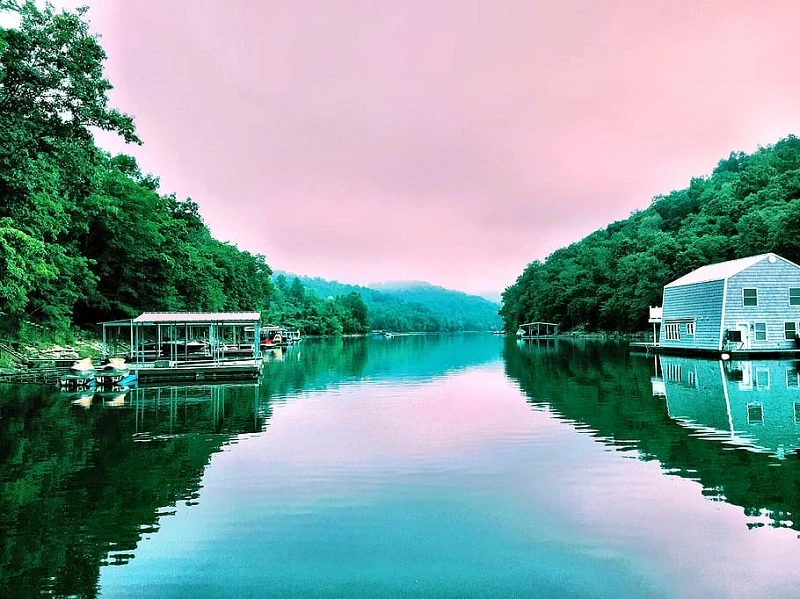
Norris Lake, commonly known as Norris Reservoir, is a well-liked warm-weather tourist spot, located 55 miles north of Knoxville. On its 34,000 acres, one of the cleanest and best lakes in Tennessee, managed by the Tennessee Valley Authority, water sports enthusiasts enjoy boating, water skiing, paddle boarding, canoeing, and kayaking in the lake’s crystal-clear waters.
This picturesque location, which is surrounded by mountains and unspoiled wilderness, is home to a wide variety of fish, including various varieties of bass. There are numerous ways to get to Norris Lake thanks to its 22 marinas and 800 miles of shoreline.
Along its shores are numerous campgrounds, including the pet-friendly Loyston Point Campground, which is located less than 10 miles north of Andersonville.
At Loyston Point, there are 64 campsites where you can set up your tent or RV. You may also reserve one of the three rustic cabins, which can hold up to five people. The campground offers a sandy swimming beach that campers can use without charge or that day visitors can use for a cost.
Cherokee Lake
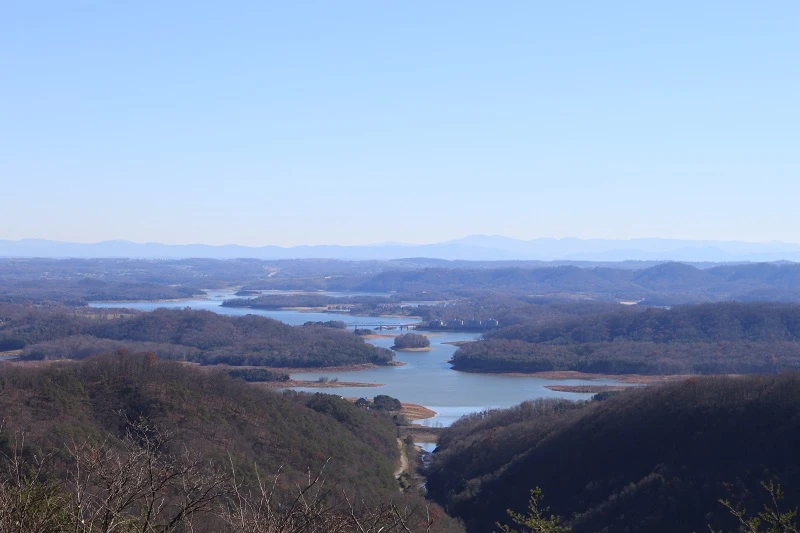
About 35 miles northeast of Knoxville is Cherokee Lake, also referred to as Cherokee Reservoir is one of the best lakes in Tennessee. When the Cherokee Dam on the Holston River was built during World War II to provide hydroelectric power, it created this artificial reservoir.
These days, the lake’s abundant bass, crappie, walleye, sauger, and catfish draw anglers to its surface of more than 28,000 acres and 400 miles of shoreline. Less than 10 miles west of Morristown, Panther Creek State Park is located on the eastern beaches of the lake.
The park’s boat ramp allows visitors to launch boats, paddle-boards, and kayaks. The park also contains more than 30 miles of hiking trails, including the Point Lookout Trail, which offers breathtaking views of Cherokee Lake and the Cumberland Mountains. If you don’t want to spend the night outdoors, a nearby affordable hotel option is the Hampton Inn Morristown.
Old Hickory Lake
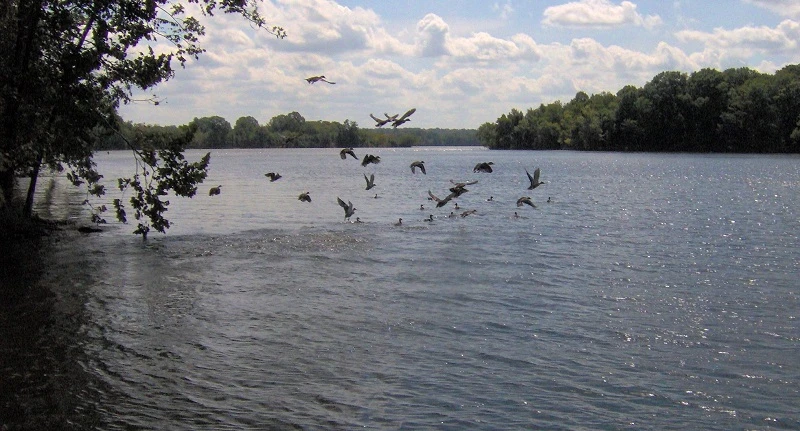
This reservoir is situated on the Cumberland River, with its western end about 15 miles from the center of Nashville. It is named for the seventh U.S. president, Andrew Jackson, whose soldiers gave him the nickname “Old Hickory” for his tenacity. You’ll have plenty of access spots to use for recreation in the 22,000 acres of water because Old Hickory Lake’s 440 miles of shoreline is dotted with numerous parks, recreation zones, and marinas.
The lake’s diversity of species, including crappie, striped bass, catfish, and sauger in the winter as its eight public fishing piers is appreciated by anglers. 60 RV and tent campsites, together with laundry facilities, hot showers, a swimming beach, and a playground, are available at the lakeside Cedar Creek Campground.
Less than 15 miles separate Old Hickory Beach from the Hyatt Place Nashville/Hendersonville, a day-use spot on the lake ideal for relaxing, picnics, or bird-watching.
Chilhowee Lake
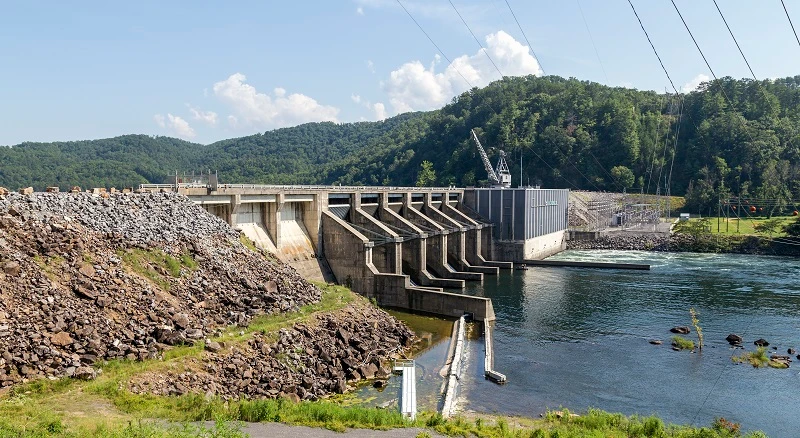
Chilhowee Lake, which is 40 miles south of Knoxville, is a component of the Great Smoky Mountains National Park’s western border. The Chilhowee Reservoir, a 10-mile-long lake with a morphology more like a river, was made possible by the building of the Chilhowee Dam on the Little Tennessee River.
This small, shallow lake is definitely one of the best lakes in Tennesse, which is around 1,700 acres in size when full, is popular with tourists who find it quiet to canoe and paddle on it.
Since the water is often chilly, trout, walleye, and smallmouth bass can thrive there. There aren’t many places to stay in this isolated region of the state, but Historic Tapoco Lodge may be found less than 20 miles away in Robbinsville, North Carolina. This Cheoah River resort has lodge rooms, suites, and cottages, as well as a riverside restaurant and hiking paths.
Nickajack Lake
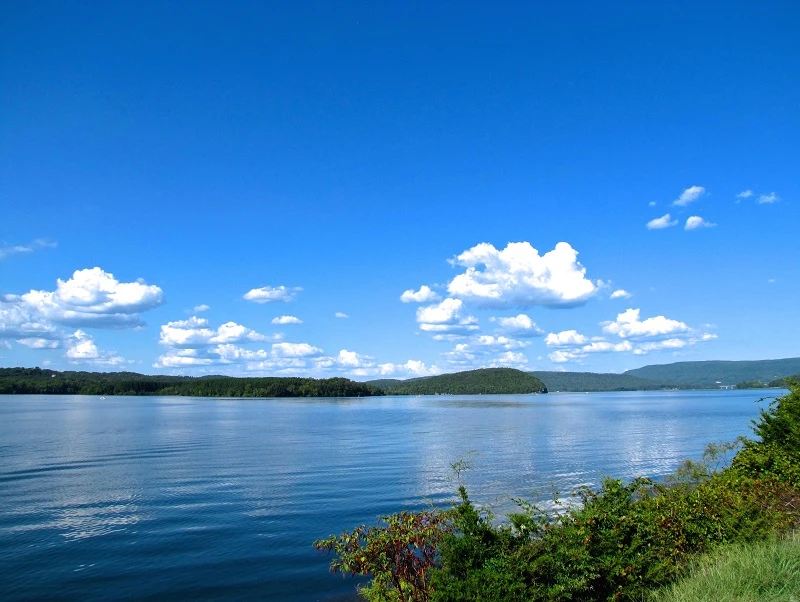
Nickajack Lake is a reservoir created by the damming of the Tennessee River, located about 20 miles west of Chattanooga and close to the borders of both Georgia and Alabama. A series of locks along the river allow commercial barges to travel upstream and downstream, including the lock at Nickajack Dam.
The 46-mile-long Nickajack Lake is a feature of the breathtaking Tennessee River Gorge, which is known for its towering limestone cliffs. Numerous marinas and boat ramps located around the reservoir’s shoreline provide access to the water for boating and fishing.
The Nickajack Cave Wildlife Refuge, historically a Native American shelter and a river pirate hideout, is situated close to the intersection of state highways 377 and 156 on the south shore of the lake.
From April to October, hundreds of endangered grey bats roost at this sanctuary, and after dark, they emerge to feed on the lake’s aquatic insects. From a viewing platform close to the cave or by canoeing or kayaking out to it, you can observe the bats.
Commercial outfitters also provide led kayak cruises at sunset. On Nickajack Lake, 15 miles outside of Chattanooga, is the Hales Bar Marina and Resort, which provides cabin rentals and RV parking.
Tellico Lake
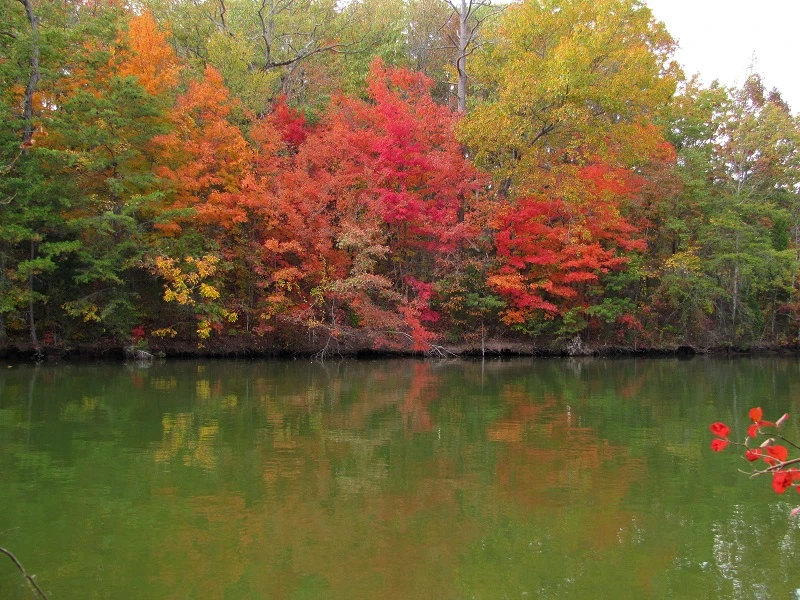
Tellico Lake, commonly known as Tellico Reservoir, is located about 30 miles southwest of Knoxville on the Little Tennessee River. You can engage in normal water sports, such as boating, canoeing, kayaking, and fishing, on this 16,000-acre lake in the foothills of the Great Smoky Mountains.
This reservoir is particularly well-known for its profusion of largemouth bass of good size, but fishermen can also catch smallmouth bass, white crappie, bluegill, and rainbow trout on Tellico Lake.
For a well-known and picturesque path, hikers can take the East Lakeshore Trail or the trails in the Loudon Municipal Park and Fort Loudon State Historic Park. There are numerous championship golf courses in the area of Tellico Lake if that’s your thing.
You’ll find alternatives for holiday rentals here because the area is well-liked by people who own second homes and has lakefront villages lining its more than 350 miles of beachfront. The lake is about 5 miles north of the Fairfield Inn & Suites Knoxville Lenoir City/I-75.
Reelfoot Lake
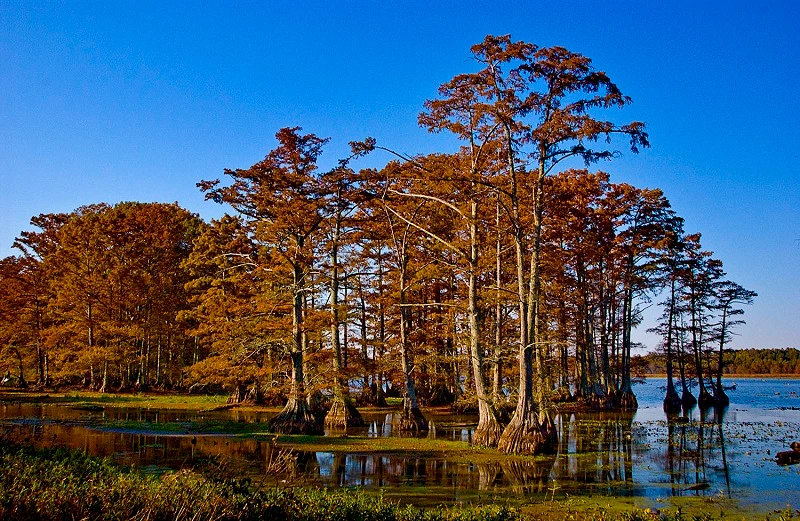
Reelfoot Lake holds the distinction of being entirely natural, having been formed when a series of earthquakes shook the region in the early 1800s.
While Tennessee’s lakes are primarily manmade, constructed by the damming of rivers (and therefore legally reservoirs), Reelfoot Lake gets the distinction of being wholly natural.
Folklore claims that the rumbles were so intense that they caused the Mississippi River to flow backwards, filling a forest that is now Reelfoot Lake. The marsh-like lake’s surface is covered in many stumps, and cypress tree tops protrude from it.
At least 14 uncommon bird species can be seen in this area, which is well renowned as a fantastic destination for bird viewing. Bald eagles frequently build nests, especially in the winter.
One method to access the lake for boating, fishing, and animal viewing is to go to Reelfoot Lake State Park. The park offers kayak and canoe rentals, and there are hiking trails suitable for families.
Reelfoot Lake State Park offers two distinct campgrounds for lodging: One campground, located on the south side of the lake about five miles from the centre of Tiptonville, has 86 campsites, while a more compact park to the north includes 10 primitive tent sites and 14 RV connections.
All year-long, spacious two- and three-bedroom waterfront cabins are offered.
Dale Hollow Lake
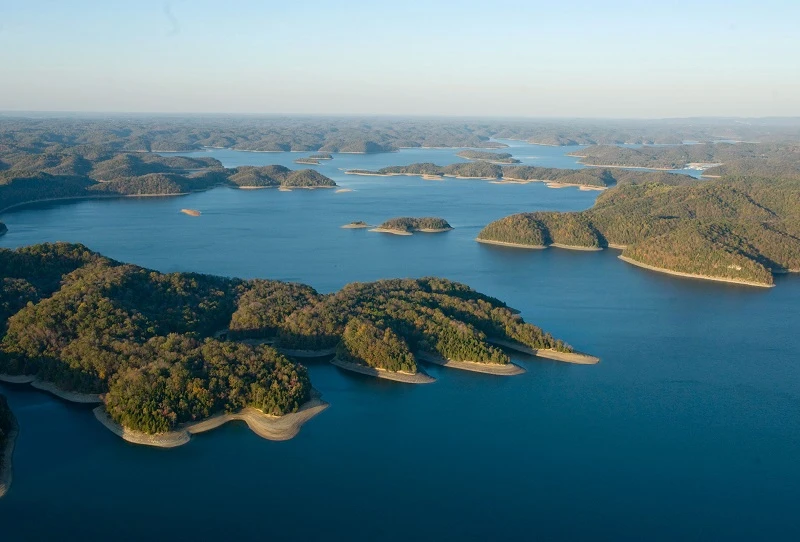
Dale Hollow Lake, located in the northern region of the state, borders the Kentucky-Tennessee boundary. With 620 miles of shoreline, this well-liked vacation spot, also known as Dale Hollow Reservoir, provides a wide range of options for hiking, boating, water skiing, tubing, and fishing.
Dale Hollow Lake is well known for its smallmouth fish since it was on its Kentucky side that an angler set the world record for the largest smallmouth bass ever, weighing almost 12 pounds, in 1955. Several local marinas hire out boats, pontoons, and PWCs, including a houseboat that can accommodate up to 12 people.
A fully functional kitchen, TV, air conditioning, and toilets with showers are all standard aboard houseboats. Some even include clothes dryers and waterslides. However, Dale Hollow Lake State Resort Park has cottages, campgrounds, and a 60-room timber lodge if camping on the water is not your thing.
Pickwick Lake
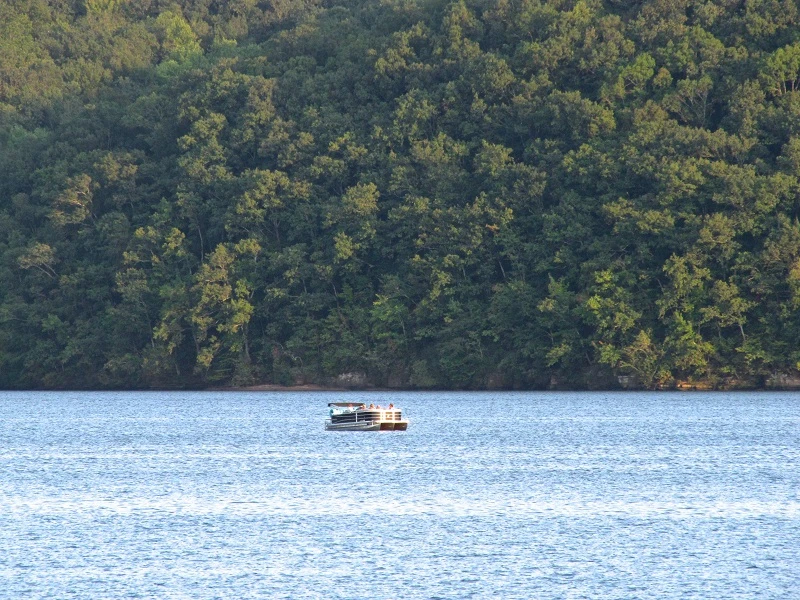
Pickwick Lake extends 53 miles south along the Mississippi-Alabama state line from Pickwick Landing Dam at the town of Pickwick Dam, Tennessee, to Florence, Alabama. The lake’s recreational opportunities can be enjoyed at Tennessee’s Pickwick Landing State Park. If you have your boat, you can launch it at one of the two public boat launches.
The park has a full-service marina where you can hire pontoon boats, kayaks, canoes, and stand-up paddle boards. Additionally, there are three public bathing beaches, two easy hiking paths, a golf course, and a disc golf course.
Other popular activities here include fishing and bird viewing. A 119-room lakefront resort with a full-service restaurant and swimming pools is also available at Pickwick Landing State Park.
J. Percy Priest Lake
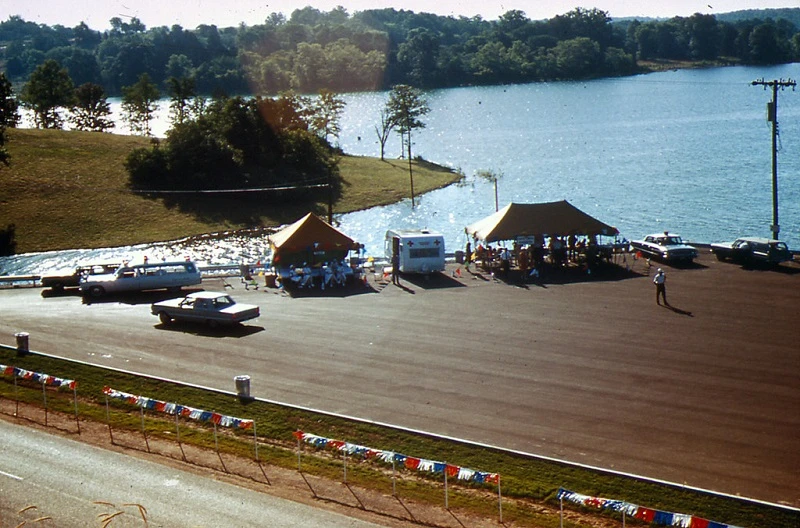
J. Percy Priest Lake, located about 10 miles east of Nashville, is a nice day trip from the city. Anglers cast lines for all varieties of bass, crappie, sunfish, catfish, bluegill, and trout at this reservoir year-round, whether from a boat or the lake’s banks.
Numerous marinas offer boat launches, boat rentals, and ancillary equipment including tubes, wakeboards, and water skis for pontoon party boats, ski boats, and fishing boats. You can swim, fish, picnic and walk at Cook Day Use Area.
Check out the campgrounds dotted throughout Percy Priest Lake’s 213-mile shoreline if you’re looking for lakefront lodging in the area. The 59 shaded campsites at Seven Points Campground also include a boat ramp and a swimming beach.
One of the closest low-cost hotels in Nashville near the lake is Comfort Suites on Percy Priest Drive, which is only half a mile from the water if you don’t want to camp.
Centre Hill Lake
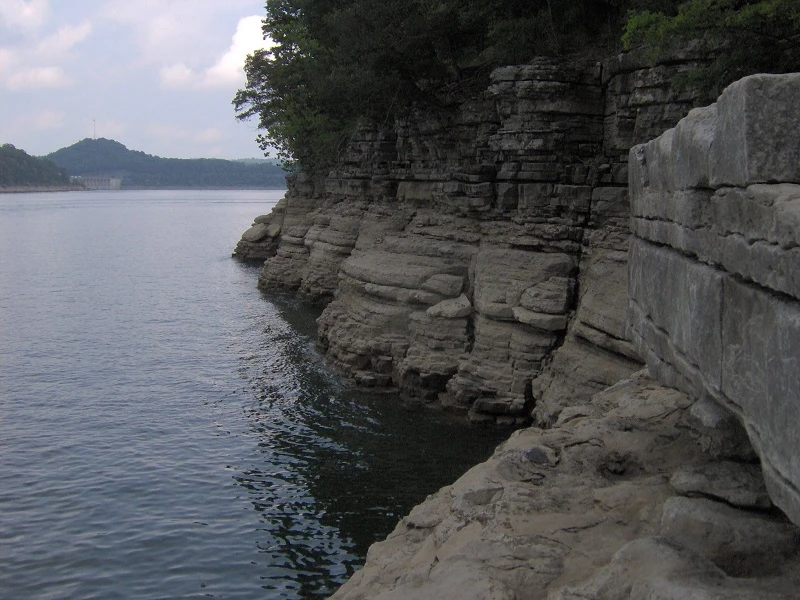
Centre Hill Lake has 415 miles of shoreline and borders three state parks in the heart of Tennessee, roughly 70 miles east of Nashville. This reservoir is best enjoyed at Edgar Evins State Park, which also offers hiking and bird-watching trails in addition to fishing and boating activities.
In addition to approximately 60 different species of butterflies, the park is home to fauna like owls, bald eagles, hawks, warblers, and many other birds. It also contains 12 miles of pathways. The 60 tent and RV campsites at Edgar Evins State Park are carved into the lake’s slopes.
The park’s furnished one-bedroom cabins for rent are not freestanding, as six structures each have numerous split-level rooms with a kitchen, air conditioning, and balcony.
Conclusion
Having said all of that, we should reiterate the fact that this may be our list of the best lakes in Tennessee, keep in mind that this is all merely a personal opinion and that there may be better locations for you to visit based on your preferences and other factors.
If you truly want this to last, we recommend that you visit at least one or two of the lakes we’ve described above, as they’ll only serve to enhance your whole experience. Tennessee is an incredibly beautiful area to visit on your next vacation.
